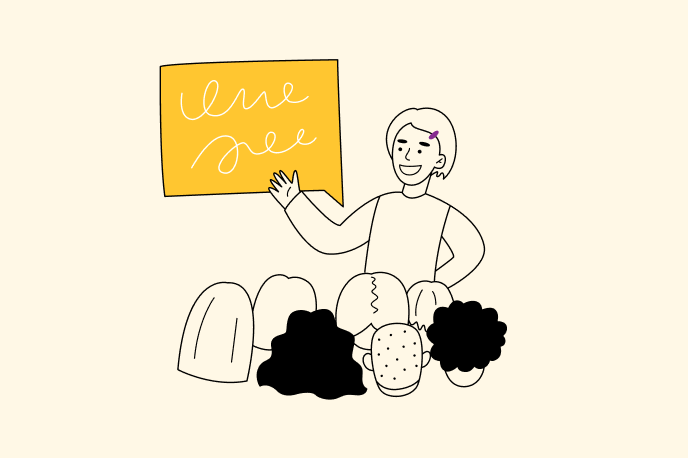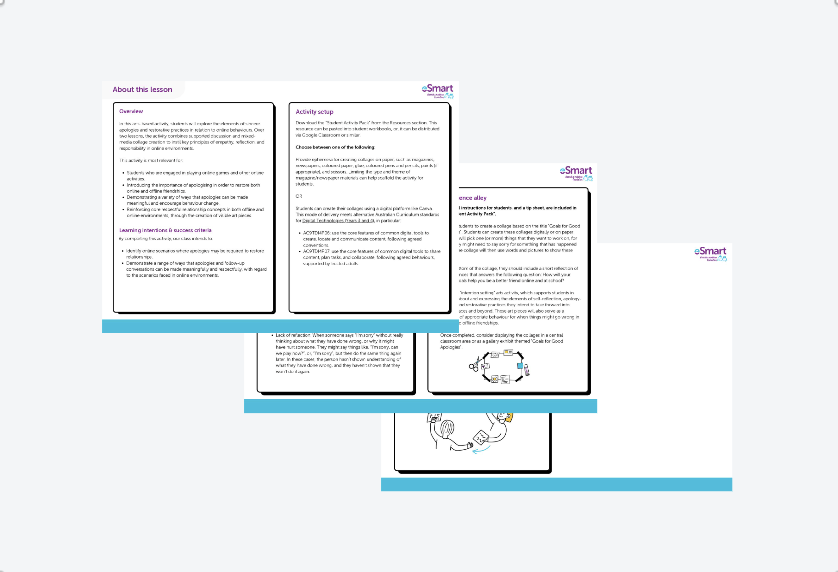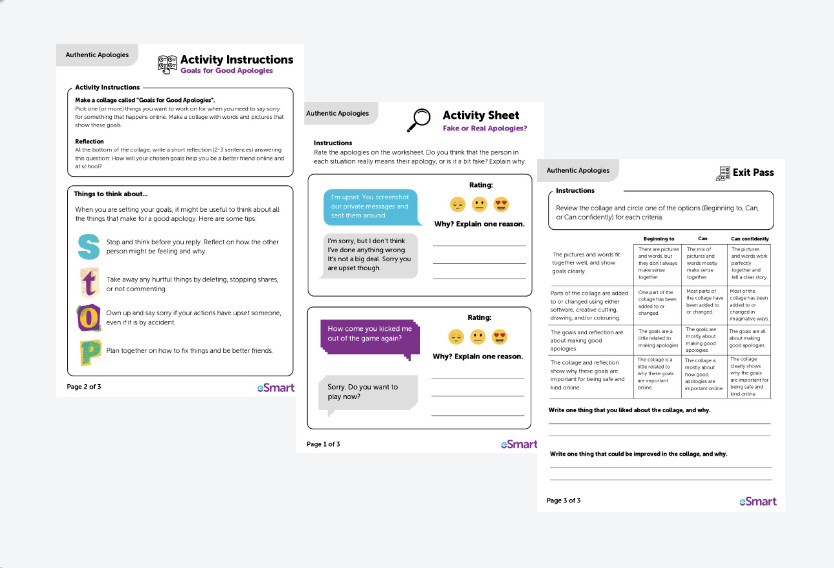Download
Setting Goals for Authentic Online Apologies

Child Safeguarding Statement
Some resources and activities may prompt a child to remember and potentially share an experience of harm. Make sure you’re familiar with your school's safeguarding policies and procedures so you can confidently report safety and well-being concerns.
Prepare students for the session by discussing: their right to be safe and respected; what to do if discussing online safety makes them feel uncomfortable or unsafe; and how to seek help if they feel or have felt unsafe. Use this resource available on the website.
Setting Goals for Authentic Online Apologies
Learners explore examples of online apologies, then create a personal collage with goals for good apologies.
Lesson summary

Learners will evaluate examples of online apologies and identify what makes them sincere. They will then make a personal collage called “Goals for Good Apologies” (digitally or on paper), using words and pictures that show their goals for when you need to say sorry for something that happens online.
This activity is most relevant for...
- Learners who regularly play online games or engage in other digital activities.
- Introducing the importance of sincere apologies to help repair and maintain friendships, both online and offline.
- Demonstrating different ways to make apologies meaningful and encourage positive behaviour change.
- Reinforcing respectful relationship skills by expressing values through visible, creative artworks.
Learning intentions
By completing this activity, our class intends to:
- Identify online scenarios where apologies may be required to restore relationships.
- Demonstrate a range of ways that apologies and follow-up conversations can be made meaningfully and respectfully, with regard to the scenarios faced in online environments.
Lesson resources
Download lesson pack
This lesson is part of the FREE digital licence program
Curriculum alignment
Australian Curriculum (Version 9.0)
Years 3 and 4: General Capabilities > Personal and Social Capabilities
- Emotional awareness (Level 3): Explain the influence that their own behaviour has on the emotional responses of others.
- Emotional regulation (Level 3): Manage and moderate emotions in familiar contexts, using provided strategies.
- Relational awareness (Level 3): Identify how they can contribute to healthy relationships and manage challenging relationships.
Years 3 and 4: Health and Physical Education
- AC9HP4P04: Select, use and refine personal and social skills to establish, manage and strengthen relationships.
- AC9HP4P10: Investigate and apply behaviours that contribute to their own and others’ health, safety, relationships and wellbeing.
Years 3 and 4: Visual Arts
- AC9AVA4D01: Experiment with a range of ways to use visual conventions, visual arts processes and materials.
- AC9AVA4C01: Use visual conventions, visual arts processes and materials to create artworks that communicate ideas, perspectives and/or meaning.
CASEL Framework
The CASEL Framework creates a foundation for applying evidence-based, Social and Emotional Learning (SEL) strategies both at school and in the broader community. Its aim is to support the cultivation of SEL skills and environments that advance students’ learning and development.
- Responsible decision-making: The abilities to make caring and constructive choices about personal behaviour and social interactions across diverse situations. For example:
- Learning how to make a reasoned judgment after analysing information, data, and facts.
- Recognising how critical thinking skills are useful both inside and outside of school.
My Time, Our Place – Framework for School Age Care in Australia
The aim of My Time, Our Place: Framework for School Age Care in Australia (the Framework) is to assist educators to provide children and young people with opportunities to maximise their potential and develop a foundation for successful lifelong learning. The Framework has been designed for use by approved providers and school age care educators working in partnership with children and young people, their families and the community, including schools.
Outcome 2: Children are connected with and contribute to their world
This is evident when children:
- Understand that people put up information that tells you news about the world.
- Understand that not all information on digital technology is true.
Outcome 4: Children are confident and involved learners
This is evident, for example, when children:
- Apply a wide variety of strategies to use digital technology to engage with situations and solve problems, and adapt these strategies to new situations.





